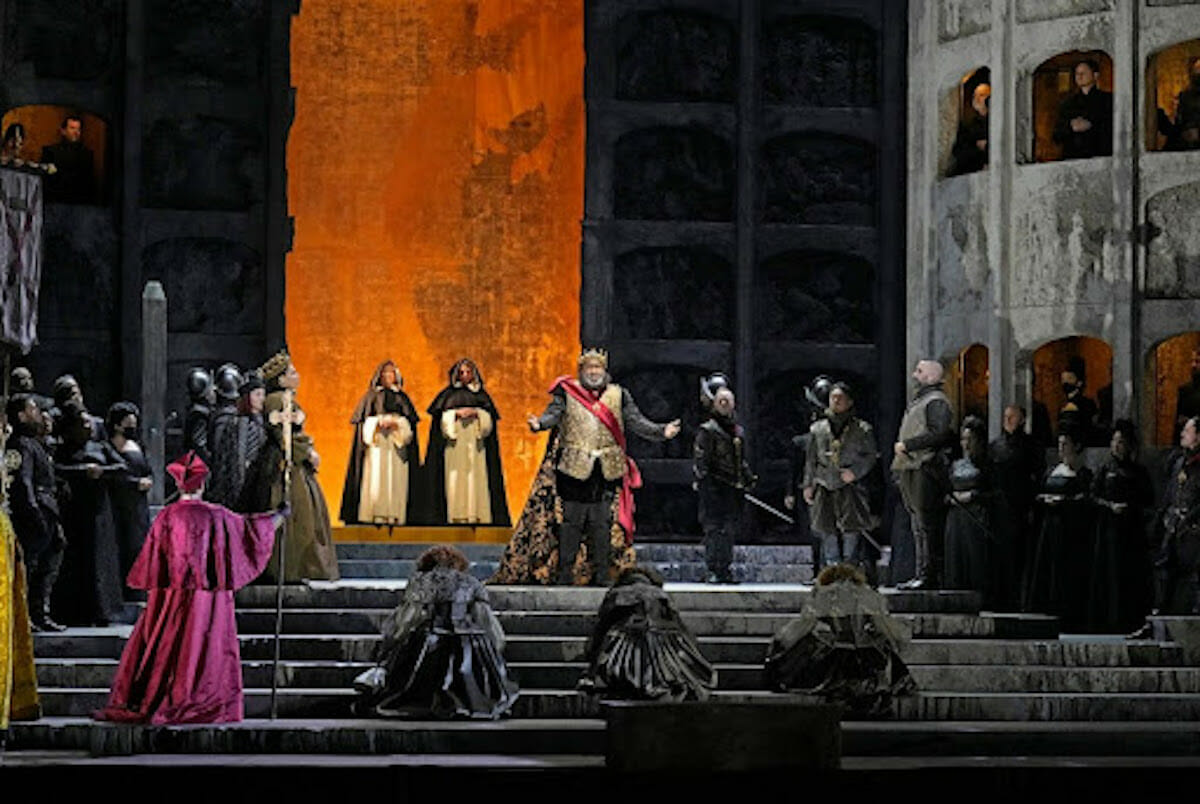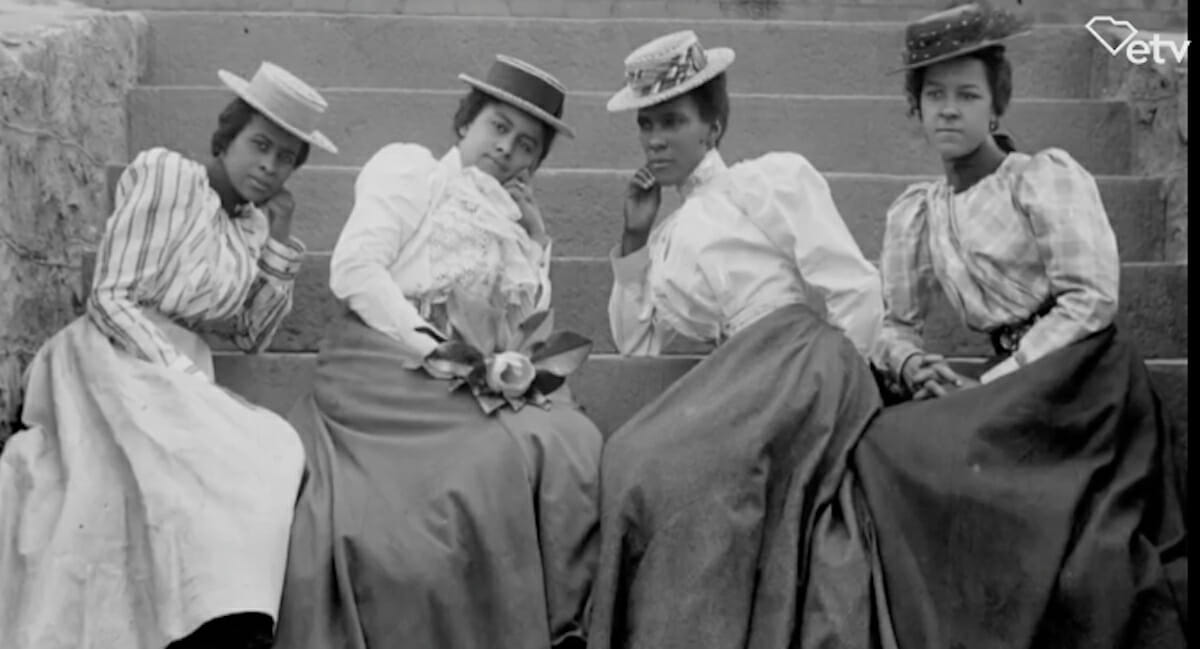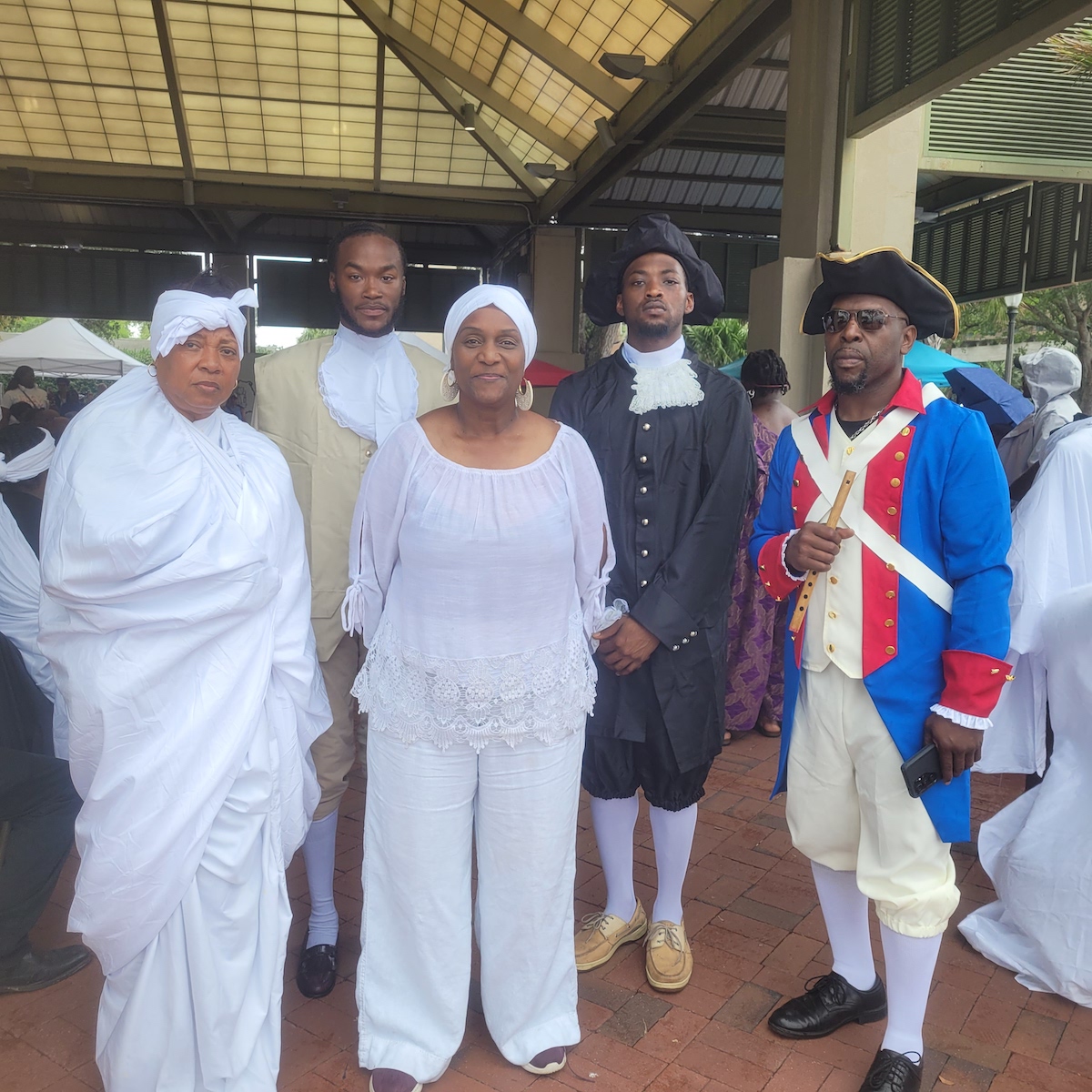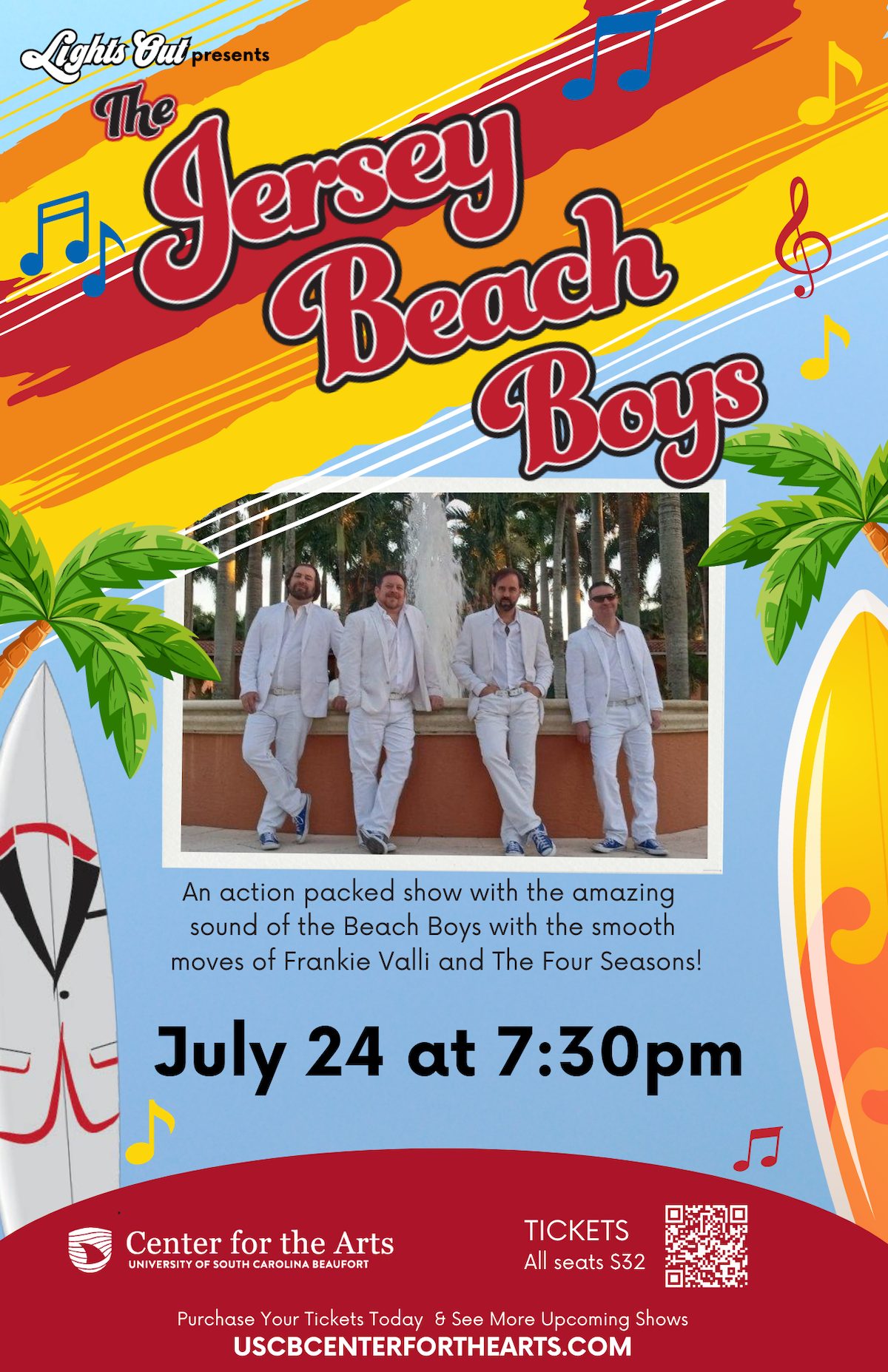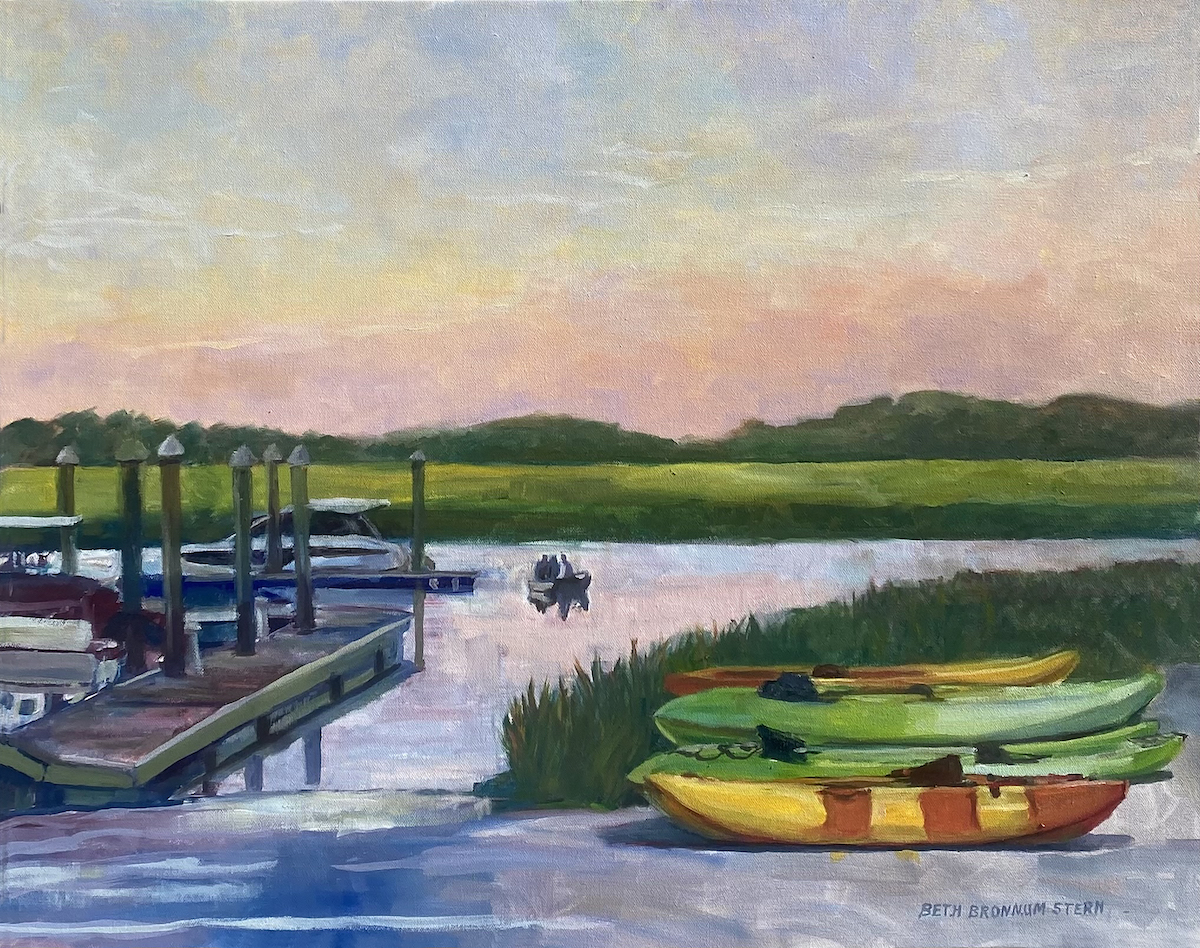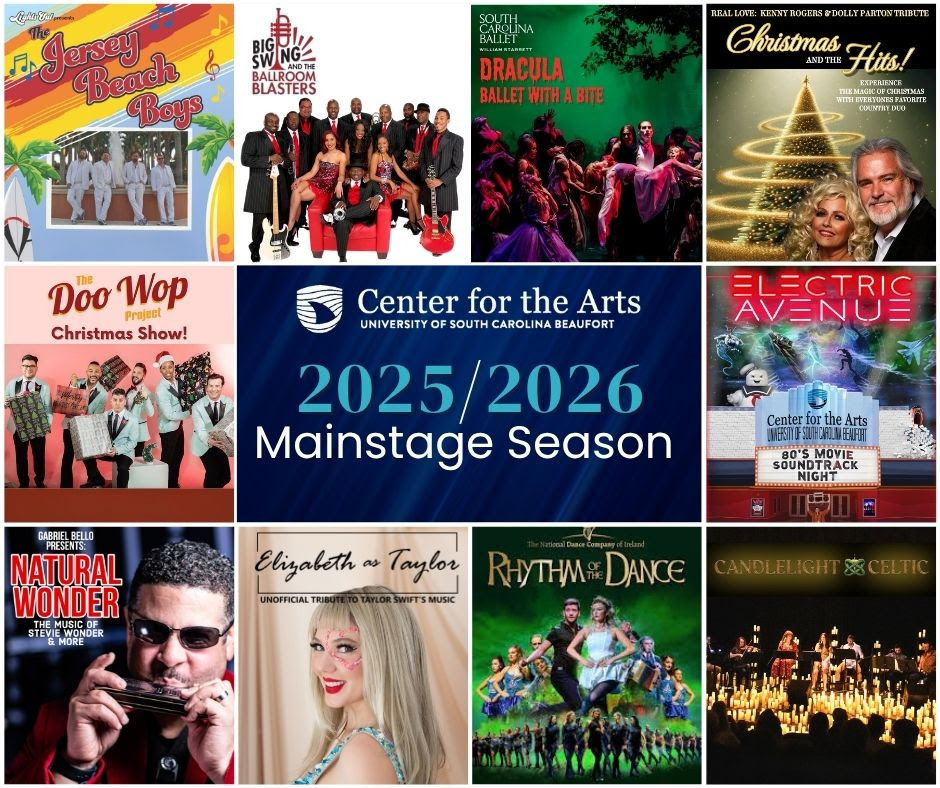By Becky Sprecher
The Metropolitan Opera will broadcast Giuseppe Verdi’s Don Carlos, on Saturday, March 26 at USC Beaufort’s Center for the Arts at 801 Carteret Street. Note that the curtain is at 12 noon rather than the usual 1 p.m.
Many of you may be wondering if I haven’t misspelled the title. Shouldn’t it be Don Carlo? This is because the opera originally premiered in Paris and was sung in French. So why did Verdi, the king of Italian opera, compose and opera with a French libretto?
The answer is because Paris was ground zero for “grand opera,” a genre created to please wealthy audiences with lavish, over-the-top sets, ballets, and huge crowd scenes. But as time went along, patrons began to insist that the spectacle should actually serve the story.
Verdi was asked to create a work that would not only rejuvenate the genre but also serve as a centerpiece of the 1867 International Exhibition in Paris, a huge fair that would be attended by millions and showcase the city as a center of serious cultural life.
Okay, great. But why make today’s singers relearn a part in French that they’ve already learned in Italian? What difference will it make?
According to Opera News Magazine, the use of the original text in French is “a cause for celebration — not as a mere matter of historicity but because the French version is incontrovertibly better.” The critic Andrew Porter sniffed that “the Italian translation makes fancy what is clear and direct.”
I suspect this aspect of the opera will be a bit too nuanced for most of us mere mortals, but we have some readers who are experienced Verdians and will know the difference.
Of all Verdi’s operas, Don Carlos and Aida are considered “grand” because of their scale. He described these works as opera a intenzione, operas about ideas, not just a series of arias, duets, trios and so forth. He wanted them to actually say something, not just provide a spectacle with pretty music.
The canvas for Don Carlos, like many of his works, was that period of time between the 14th and 18th centuries in Europe when most of the major nations and states were forming.
“The class structures and social conditions of these societies were well documented and provided specific environments in which Verdi’s characters could live,” explains Fred Plotkin in his book, Opera 101. “There are stories of kings and queens, princes and princesses, dukes, doges, military heroes, cardinals and other religious officials, conspirators and assassins. Their choices and their fate affect not only their personal lives but also the destiny of peoples and nations.”
Don Carlos is based on the 1787 play by the German poet, philosopher, and historian Friedrich von Schiller. It is set in Spain during the time of the Inquisition and “explores the havoc and misery that unchecked authority and oppression can wreak,” says Plotkin.
Verdi, never one to shy away from a fight to free Italy from foreign domination, relished taking up the challenge of transforming Shiller’s play into an opera. “He composed much of the music at his home near Parma,” continues Plotkin, “but had to flee when some of the fiercest battles of the Austro-Prussian war (this part of Italy was under Austrian rule) raged near his house.”
The story begins in the year 1560. After years of struggle for the control of Italy, France and Spain are exhausted with war. The son of King Philippe of Spain, Don Carlos, has traveled incognito to Fontainebleau, where the formal negotiations between the two countries are in progress.
He sees his intended bride, Élisabeth de Valois, and they fall in love on sight. Their ecstasy is short-lived, however, when they receive news that, as part of the negotiations, Élisabeth must marry Philippe.
Now losing one’s betrothed as the result of political horse-trading is bad but losing her to one’s father is a lot for a guy to take. This situation sets up a labyrinth of intrigue, secret meetings in monasteries, stolen jewels, appearances by the ghost of Charles V, temptresses, and a huge auto-da-fé crowd scene where heretics confess and are burned at the stake.
Finally, in an act of rebellion against his father inspired by the liberal leanings of his best friend Rodrigo, Carlos demands to be appointed deputy ruler of Flanders to ease the suffering of its people under oppressive Spanish rule. When Philippe refuses, Carlos draws his sword against his father.
The Grand Inquisitor (who is blind, by the way, both physically and to the needs of humanity) promptly orders Carlos imprisoned and tells Philippe that he must sacrifice his son to death, just as God sacrificed his son for the sake of mankind. This leaves Philippe to ruminate on this horrifying possibility as well as his loveless marriage to Élisabeth, and why both affairs of state and love must always yield to the Church. One can see a tragic ending looming.
All of the six major characters are forced by duty, love, or unavoidable circumstances to make painful choices, so really strong singers are required for each role to unleash this opera’s full dramatic power. As usual, the Met has assembled a terrific cast that should more than meet the challenge.
But heads up: there is a Southern girl singing the role of the scheming Princess Eboli. She is the 2016-17 Beverly Sills award winner and mezzo soprano Jamie Barton, who hails from Rome, Ga.
For a grand opera, you may be surprised to see the use of just a single set in the Met’s new staging. This is by design, according to Director David McVicar in an article titled “Liberty or Death” on the Met website. “Philip, hand in hand with the Church, has created a dictatorship of thought and an empire of fear — an empire ruled by death,” says McVicar. “Set designer Charles Edwards and I researched a great deal about catacombs and ossuaries because we wanted to entrap all the characters in a world almost without sunlight and make death an ever-present theme in every visual picture.”
Of course the challenge to such as concept is that, in addition to providing functionality, the set must appear beautiful — even if it’s in a terrible way.
Opera seasons are scheduled several years in advance but presenting a work about the abuses of power by a handful of delusional people is most timely. On the opening night of Don Carlos on Feb. 28, the audience rose for the singing of Ukrainian national anthem by the Met’s chorus and orchestra.
At center stage was a 24-year-old Ukrainian bass-baritone, Vladyslav Buialskyi, who was about to make his debut with the company. He stood with his hand held over his heart. One could almost imagine the ghosts of Verdi and Schiller, avatars of humanism and freedom, standing shoulder to shoulder beside him.
This is a long opera that requires patience, involvement, and concentration. But serious times deserve a serious opera. With so many of its themes resonating today, Don Carlos commands both our attention and reflection.
Estimated run time is 4 hrs and 35 minutes, with an intermission after Acts I & II, and a second intermission between Act III, and Acts IV and V. Sung in French with Met Titles in English.
For a full synopsis and production details, visit metopera.org, click Menu/Season/In Cinemas. To book a seat in advance, visit uscbcenterforthearts.com, click Met, Movies and More.
Tickets will also be on sale at the door. Price: $22, and $20 for OLLI members.
WANT TO GO?
What: The Met’s HD broadcast of Don Carlos by Giuseppe Verdi
When: Noon, Saturday, March 26
Where: USC Beaufort’s Center for the Arts, 801 Carteret Street
Tickets: $22, and $20 for OLLI members, on sale at uscbcenterforthearts.com or at the door.
Notes: Estimated run time is 4 hrs and 35 minutes, with an intermission after Acts I & II, and a second intermission between Act III, and Acts IV and V. Sung in French with Met Titles in English. For a full synopsis and production details, visit metopera.org, click Menu/Season/In Cinemas.


